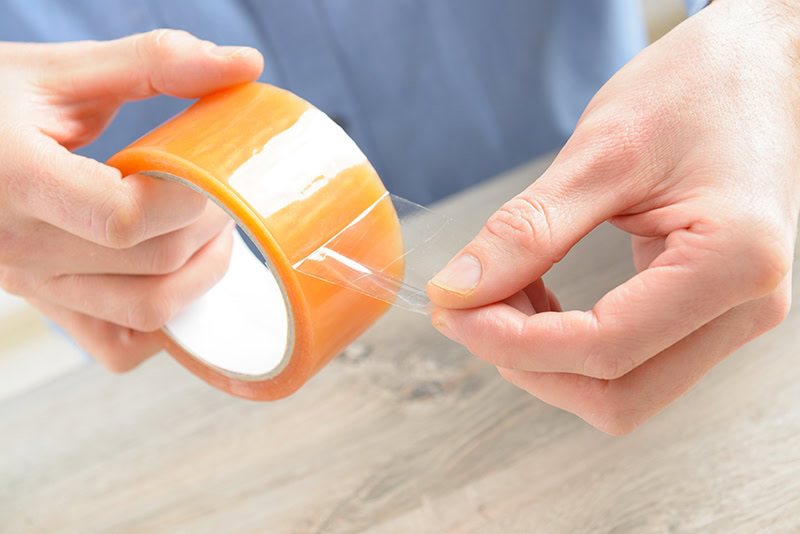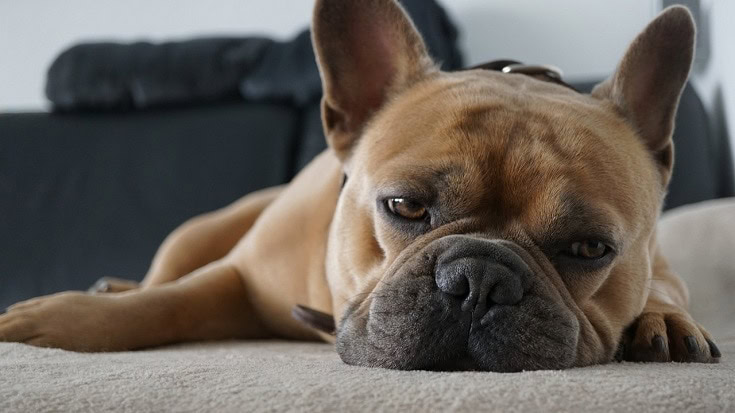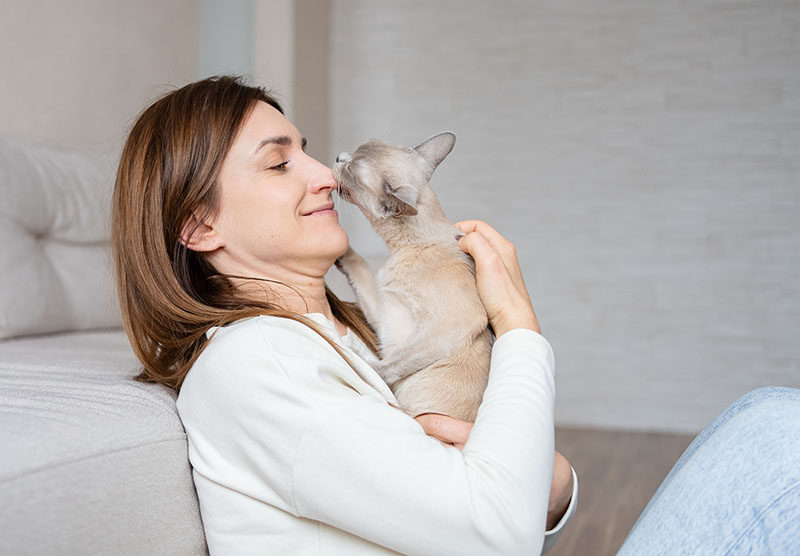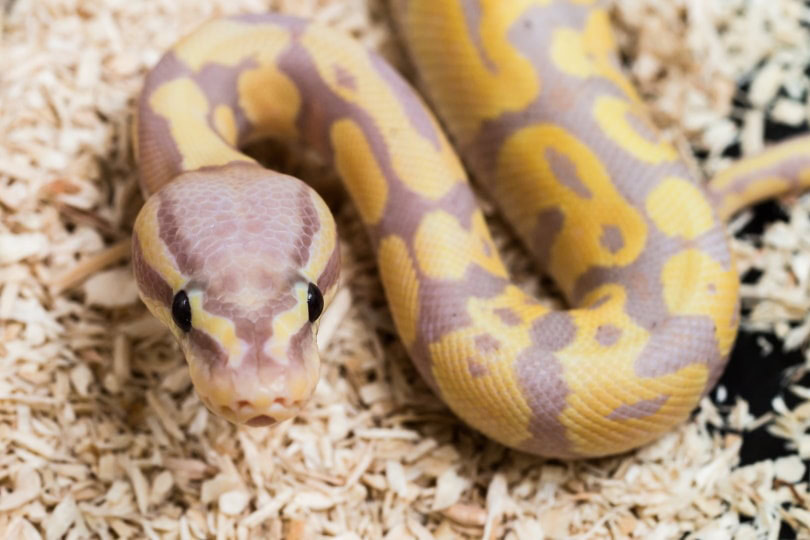VET APPROVED

The information is current and up-to-date in accordance with the latest veterinarian research.
Learn more »Although there are a few things that we know cats enjoy eating, like fish, chicken, and beef, sometimes they chew and even eat things that aren’t even food, like tape. Why do some cats chew or try to eat tape? It’s a weird and sometimes worrying habit that many cat parents do not understand. As it turns out, there are a few different reasons that a cat might decide to eat tape.
Please note that eating tape or other inedible objects may cause life-threatening gastrointestinal issues, such as a blockage requiring surgery, depending on the amount ingested, and it’s important to consult with your vet if your cat has swallowed any amount of tape.

The 7 Possible Reasons Your Cat Is Eating Tape
1. Boredom
One reason your cat might try to eat tape is simply that they are bored. Perhaps they haven’t gotten any new toys lately, and the same old stuff is no longer interesting. Maybe they are no longer getting the mental stimulation that they need from the toys that they are used to playing with. Try to distract your cat from the tape with a toy to chase, a game of “keep away,” or a catnip-filled item. Ensure they get plenty of physical exercise and mental stimulation through environmental enrichment on a daily basis.
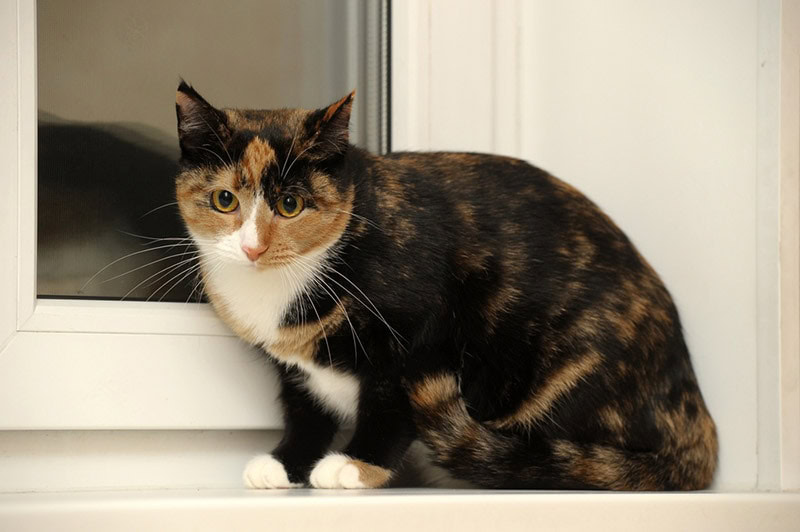
2. Nutritional Deficiencies
Sometimes, a cat will try to eat things that are not normally edible because they are trying to get nutrients their body is lacking. This could happen if you adopted a cat from the street that hasn’t been receiving appropriate nutrition, or more commonly in case of an underlying illness, such as gastrointestinal or pancreatic issues leading to malabsorption of nutrients from the diet.
Cat’s nutritional needs could also have changed due to age, pregnancy, or a health-related issue, and their food may not support those needs any longer. Your veterinarian will be able to help you determine whether any nutritional deficiencies are present and how to correct the problem so your cat stops eating tape.
3. Other Health Issues
Unfortunately, underlying health conditions can lead a cat to do things like eat tape. For example, cats with an increased appetite, suffering from conditions such as hyperthyroidism or diabetes might eat tape or other inedible objects as well as actively beg for food. In case of your cat having an increased appetite, losing weight, drinking more than usual, or eating inedible objects, schedule a checkup with your veterinarian.
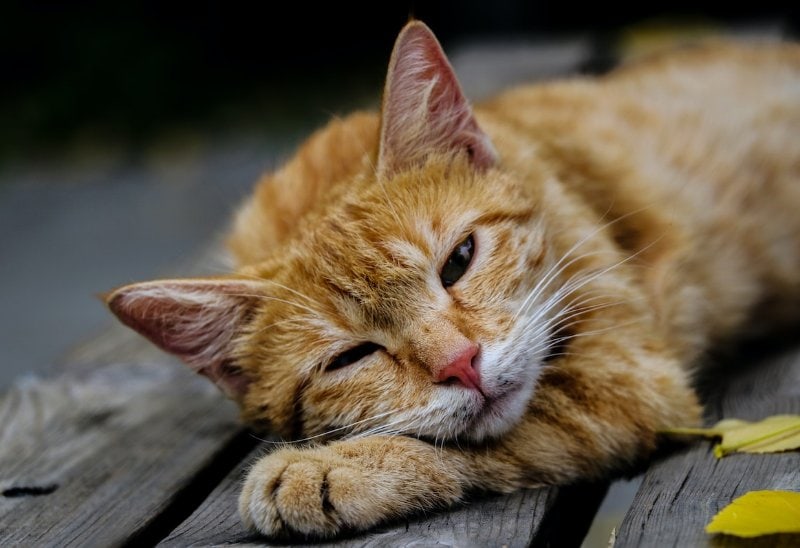
4. Early Weaning
Felines that are weaned from their mother’s milk too early, especially in the case of certain cat breeds such as the Siamese and Birman, with small litters and often underlying medical conditions, may end up trying to do things like suck on blankets and consume wool. They might try to eat tape too, even through their teenage years. If you obtain a kitten that shows signs of early weaning, talk to your veterinarian about proper management, socialization, and nutrition that will help ensure that they get the care and nutrients that they need as they grow and age.
5. Anxiety
Like humans, cats can develop anxiety for many different reasons. Perhaps a new baby or pet has been introduced to the household, everyone has moved to a new place, or another type of lifestyle element has changed. When feeling anxious, some cats will do strange things, like eat tape, to try to relieve that anxiety. Addressing the cause is the best way to avoid the risk that your cat will do things like eat tape.
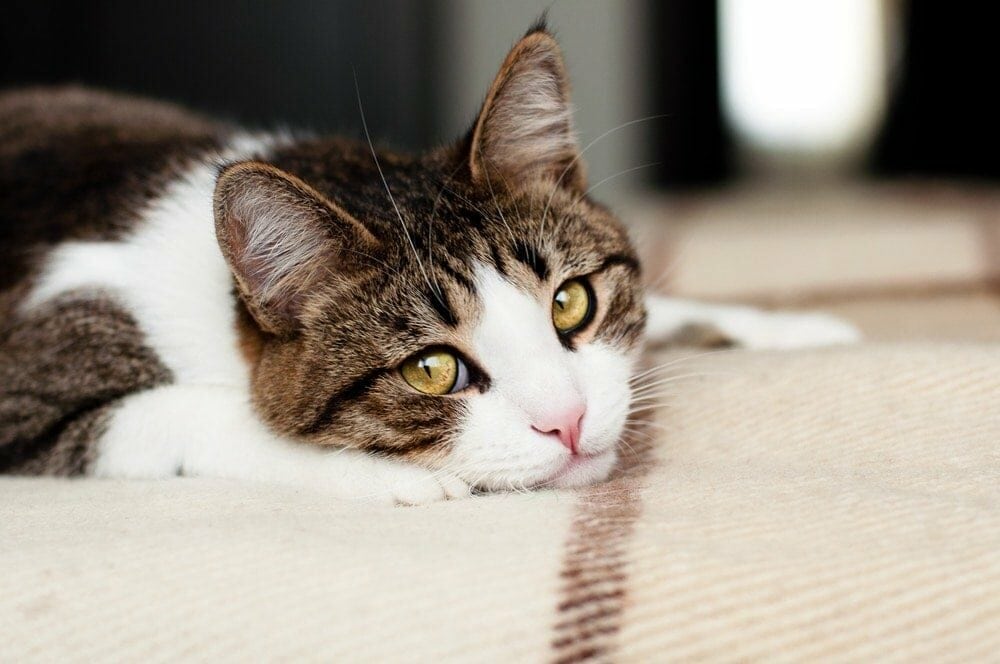
6. Curiosity
Sometimes, a cat will chew or try to eat tape simply out of curiosity. Tape can be interesting to cats due to its crinkly sounds and sticky texture. Some cats even like the taste of the adhesive. Curiosity can quickly turn into an obsession if your cat is allowed to continue playing with and eating tape. So, you might need to take the tape away from your curious kitty whenever they get their paws on a piece.
7. Pica
Pica is a condition that involves the compulsory eating of things that are not edible or nutritious in any way, such as tape. Pica can be seen in any breed of cat, with Siamese, Burmese, and Birman being more predisposed. It can be caused by many factors and ailments, some of which have already been mentioned, such as early weaning, chronic gastrointestinal issues, parasites, neurological disorders, nutritional deficiencies, and many others. Some cats with pica may chew on and consume wool, or other materials like rubber, wood, plastic, leather, cardboard, and tape.
Getting your cat examined by the vet is the necessary first step in ruling out underlying health issues that may have led to pica. Afterward, ensuring that your cat has plenty of indoor stimulation and environmental enrichment can help keep them from eating inedible items in some cases. It is also important to make sure such things are kept out of reach and sight as much as possible. Sometimes, behavioral training and intervention are necessary.
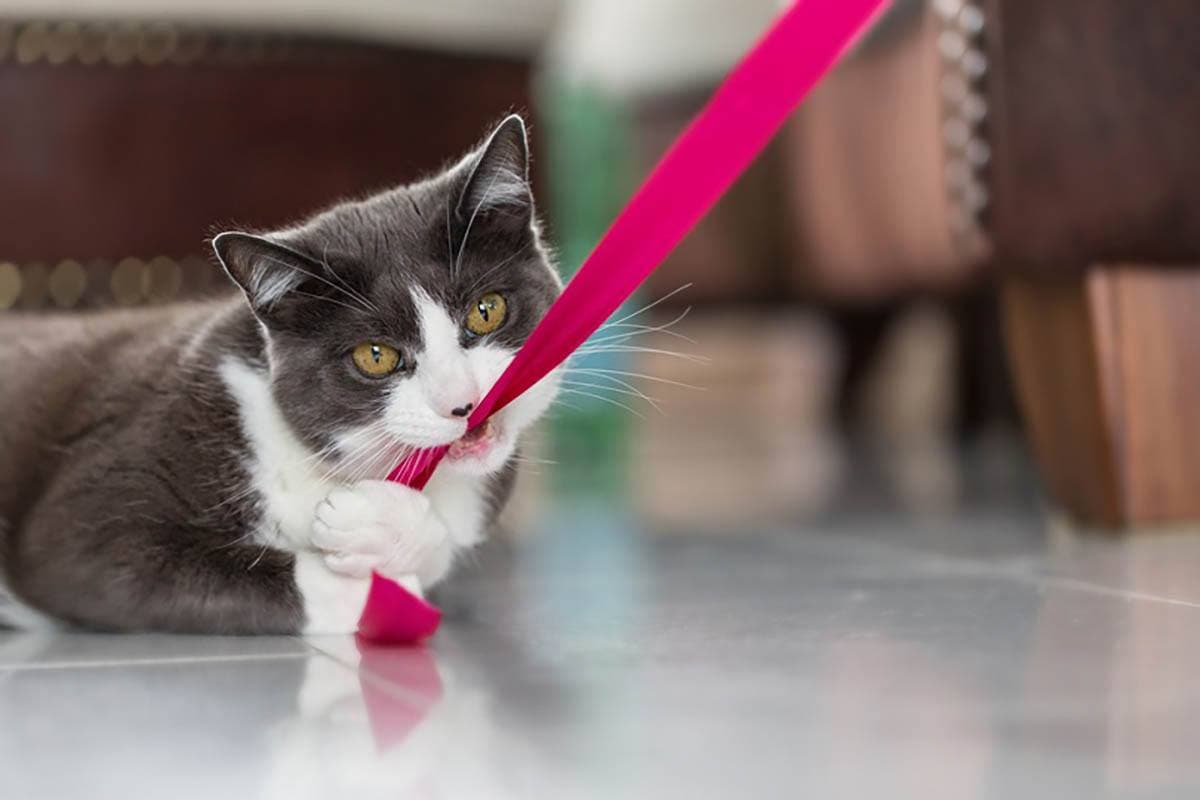
What Could Happen If My Cat Eats Tape
If your cat swallows tape, depending on the ingested amount, this may lead to serious gastrointestinal issues, such as a blockage, stomach upset, or difficulty defecating. A blockage of the stomach or intestines will require an endoscopic or surgical treatment in order to remove the tape. If the tape is particularly sticky, it may also get stuck around your cat’s tongue, on their gums, or at the back of the throat, causing distress, irritation, gagging or even choking.
Regardless of the reason for your cat eating tape, this behavior should be discouraged by placing all such objects well out of your cat’s reach. Your vet will perform investigations and formulate an appropriate treatment and management plan in order to avoid the health complications associated with ingestion of tape.

Final Thoughts
There are several different reasons why your cat might be chewing on or eating tape. The key is to figure out the cause of the behavior so the cause can be addressed. Sometimes this may point to an underlying health issue, a behavioral disorder caused by early weaning in some breeds, or it may occur as a consequence of insufficient physical activity and mental stimulation. Speak to your vet who can rule out some of the more common medical conditions that may result in pica, while providing you with tips on how to manage it going forward.
Featured Image Credit: Monika Wisniewska, Shutterstock
